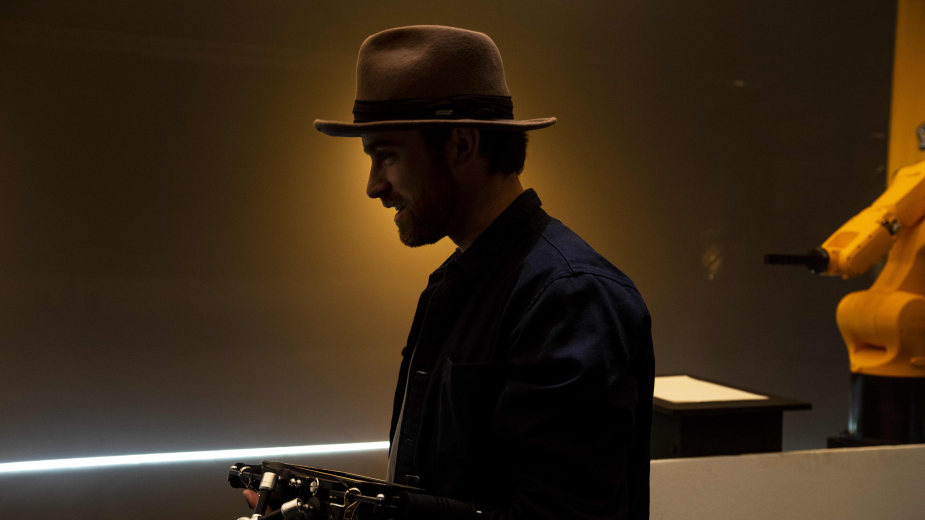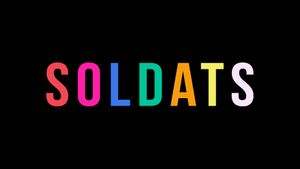
The Directors: Jules Renault

Jules Renault began his career making music and skateboarding videos between New York and Los Angeles. Both director and photographer, Jules draws his inspiration from hip-hop, the blues, cinema and skateboarding.
Jules has already collaborated with Soldats on the Citroën Ami project, which won the Wood Pencil 2021 award (D&AD), and more recently the Outlaw Runners digital campaign by Distance that set the international media on fire.
His love for street and craft has allowed him to work with Adidas and Reebok.
Jules has a particular interest in documentaries. His latest project 'Crown Heights - suspended in time' was shown in a Parisian gallery.
Name: Jules Renault
Location: Paris
Repped by: Soldats
Awards: VOTD 2018 Winner 'Reebok - City Series'; The Taste Award 2019 - Winner best of France; 'Melt A Smoking Story'
LBB> What elements of a script sets one apart from the other and what sort of scripts get you excited to shoot them?
Jules> I think it really depends on how far brands and creatives are ready to take a bet on a creative standpoint. You can see from miles away when a script is just only aiming for content to nourish commercial platforms. I like when a script seems challenging, it means that it’s gonna be refreshing and inspiring for audience. I’m a big fan of approaching the legacy of a great brand with a fresh eye. The best scripts are the ones that carry the history of a brand and DNA on a new level without too many limits in creative ideas.
LBB> How do you approach creating a treatment for a spot?
Jules> I try to conciliate my style, the stuff I want to challenge creatively and the brand campaign’s DNA. I usually write down all the ideas that flow, and then put it in order. Being a former editor, I go straight to the shotlist process, then I write about the whole concept. I tend to write without limits, in a very exhaustive way. I make sure I go as far as possible in all creative tunnels possible. Then comes the budget conversation - this is where I trim down the ideas and select the elements that are the most relevant regarding my appreciation and brand’s needs.
LBB> If the script is for a brand that you're not familiar with/ don’t have a big affinity with or a market you're new to, how important is it for you to do research and understand that strategic and contextual side of the ad? If it’s important to you, how do you do it?
Jules> It is very important. I think you get to like a brand by knowing its history and understanding the audience you are going to deliver the message to. To me, ideas come in the process of research. I try to find a very large spectrum of information related to the brand.
LBB> For you, what is the most important working relationship for a director to have with another person in making an ad? And why?
Jules> To me, it is great relationship with your producer. Understanding the budget challenges and talking back and forth with him so that creatively we are as happy as the brand / agency. The best producer to me is the one who knows how to protect his talent’s ideas and in the meantime a good 'translator' to clients.
LBB> What type of work are you most passionate about - is there a particular genre or subject matter or style you are most drawn to?
Jules> I’ve always been a big fan of documentaries. Getting intimate with the subject or communities that I document puts me in a zone where everything feels more organic. Starting from a reality and enhancing it visually along with the storytelling is one of the exercise I cherish the most.
LBB> What misconception about you or your work do you most often encounter and why is it wrong?
Jules> I come from aggressive inline skating and started in the Hip-hop industry. I’m considered as an 'urban director'. I like it but in some ways it is a bit reductive. I love injecting my drama / urban look in brands that never represented themselves that way. I often work on my personal projects all by myself, it lets me play on different fields (professions), different mediums, and I love that crafty process. But a lot of people in this industry ask me to do the same for their brands - it just doesn’t work unless there is a great budget to go further creatively. Redoing personal stuff for brand is weird.
LBB> Have you ever worked with a cost consultant and if so how have your experiences been?
Jules> Ask my producer ;)
LBB> What’s the craziest problem you’ve come across in the course of a production – and how did you solve it?
Jules> We've all come up with 'shittyrig' ideas when parts of equipment are not working on set and we are running out of time. I wish I could talk about a shoot accident (of course, nobody was hurt!) that took us more time than expected of discussions to be able to come back and shoot the second part, but I’m really not allowed to :)
LBB> How do you strike the balance between being open/collaborative with the agency and brand client while also protecting the idea?
Jules> Even tho I always try to enhance my craft. A director should not forget it is not his film in the first place. I guess you can feel it before you accept the job. How much « space » I have to play with my ideas and vision on the film. It’s all about anticipating the ratio between brand client needs, agency ideas and my craft.
LBB> What are your thoughts on opening up the production world to a more diverse pool of talent? Are you open to mentoring and apprenticeships on set?
Jules> We have to keep the door open to a more diverse pool of talent. I find it obvious, without it, the production world would stick to a neutral position, with no evolution.
It is the essence to me, by mentoring you learn your basics in the process, and it feels refreshing. That’s a wonderful feeling to see the potential in one’s talent and betting on a bright future for him/her. You never know, you might collaborate with that same talent in the future, you can’t go more organic than that, especially in this industry.
LBB> How do you feel the pandemic is going to influence the way you work into the longer term? Have you picked up new habits that you feel will stick around for a long time?
Jules> Obviously 'remote' is a new trend! It is a good thing for the competition process, you win a lot of time by not attending physically to all of those meetings. But when you starting a go-prod, you need that physical contact.
LBB> Your work is now presented in so many different formats - to what extent do you keep each in mind while you're working (and, equally, to what degree is it possible to do so)?
Jules> We make sure to always ask what is the mandatory 'star' format. It all starts from there. But it has its limits. Obviously we are not playing with anamorphic lenses if it’s going to end up 9:16, but depending on the subject you can always find new ideas and challenge you creativity with post department and bring your project to another level. Sometimes it is surprising how these formats are great canvas for standard 16:9 ads.
LBB> What’s your relationship with new technology and, if at all, how do you incorporate future-facing tech into your work (e.g. virtual production, interactive storytelling, AI/data-driven visuals etc)?
Jules> I’m old school, not really interested in that. But whenever a production comes with a new way to work it often sticks to me for the future.













